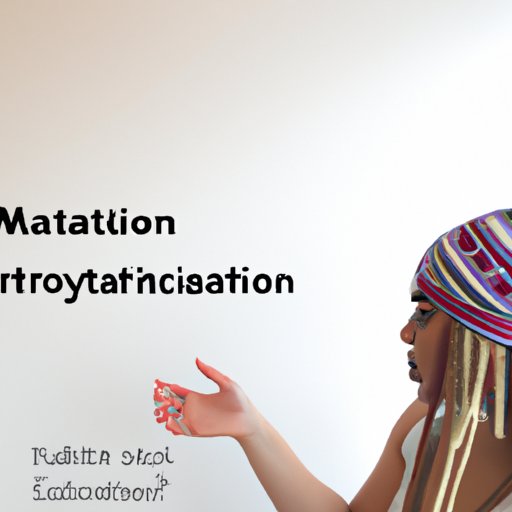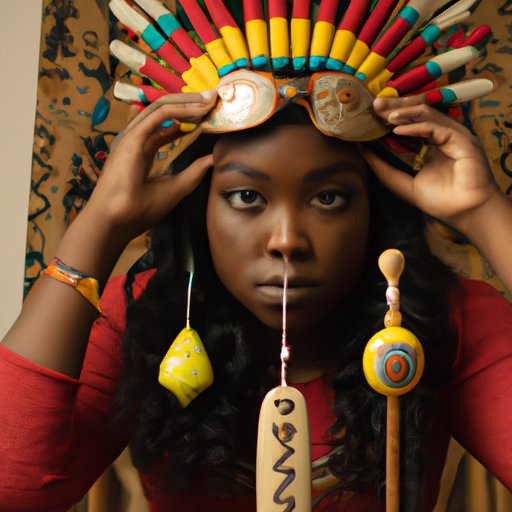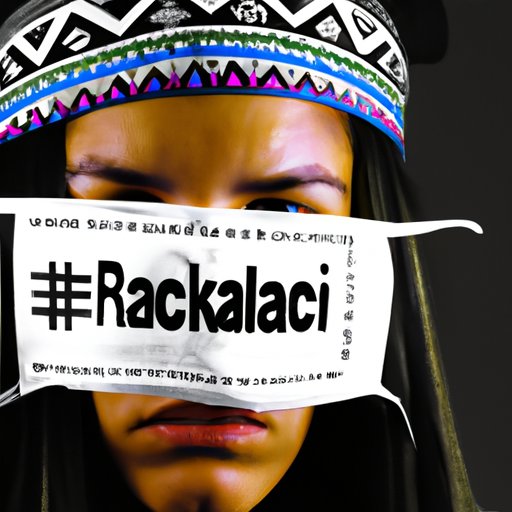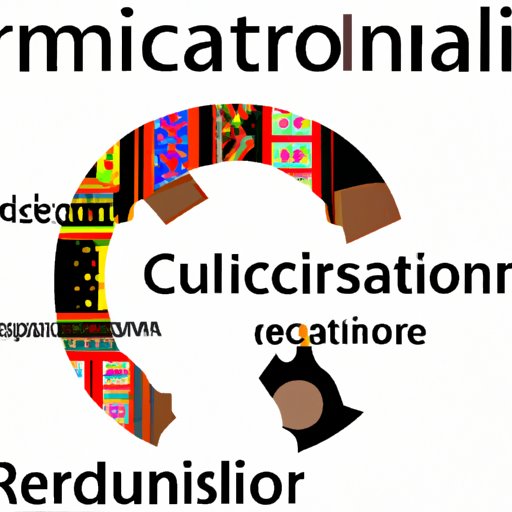Introduction
Cultural appropriation is a controversial topic in today’s society. It is defined as “the act of taking or using things from a culture that is not your own, especially without showing that you understand or respect this culture.” But what does this definition mean in practice? And why is cultural appropriation seen as a negative thing? This article will explore these questions and examine the impact of cultural appropriation on marginalized groups.

Explaining Cultural Appropriation and its Impact on Marginalized Groups
To begin, let’s look at what cultural appropriation actually is. According to Dr. Adrienne Keene, an expert on Native American studies, “Cultural appropriation is the adoption or theft of icons, rituals, aesthetic standards, and behavior from one culture or subculture by another. It’s most likely to be harmful when the source community is a minority group that has been oppressed or exploited in other ways or when the object of appropriation is particularly sensitive, e.g. sacred objects.”
But why is cultural appropriation considered bad? In short, it is seen as a form of oppression for marginalized communities. When people from dominant cultures appropriate elements from minority cultures, they are often unaware of the history and significance of those elements. This can lead to misrepresentation and disrespect of the original culture.

Examining Power Dynamics of Cultural Appropriation
It’s important to consider the power dynamics behind cultural appropriation. Who typically engages in cultural appropriation? Generally speaking, it is people from dominant cultures who appropriate elements from minority cultures. This can lead to a feeling of superiority over the minority culture, which perpetuates oppressive power dynamics. As Dr. Keene states, “The power imbalance is clear: members of the dominant culture can take what they want, when they want, with little regard for the effects on the source community.”
These power dynamics also affect how minority cultures are perceived. For example, when elements of a culture are taken out of context and used for fashion or entertainment, it can lead to stereotypes and misrepresentation. This can have a damaging effect on the perception of minority cultures.
Examples of Cultural Appropriation in Popular Culture and Media
Cultural appropriation is an issue that has been around for a long time, but it is becoming increasingly visible in popular culture and media. From celebrities wearing traditional clothing from other cultures to television shows that depict cultures inaccurately, cultural appropriation is pervasive in our society.
One example of this is the widespread use of Native American headdresses and symbols in fashion. While these items may seem fashionable and trendy, they are rooted in a long history of oppression and violence against Native Americans. Wearing them without understanding the history behind them can be seen as disrespectful and appropriative.
Another example is the way certain cultures are portrayed in media. Asian cultures, for example, are often depicted as exotic or foreign, while African cultures are often portrayed as primitive or uncivilized. This perpetuates damaging stereotypes and can lead to misunderstanding and disrespect of these cultures.

Perpetuation of Racism through Cultural Appropriation
Cultural appropriation can also lead to the perpetuation of racism. By appropriating elements from a culture without understanding the history behind them, people from dominant cultures can end up reinforcing harmful stereotypes. This can lead to a lack of understanding of other cultures and further marginalization of minority groups.
As Dr. Keene explains, “Cultural appropriation can reinforce existing power structures and systems of oppression, such as white supremacy, colonialism, and capitalism.” When minority cultures are treated as something to be taken and used for the benefit of dominant cultures, it can lead to a feeling of inferiority among minority groups and an inability to gain power or recognition.
Erasure of Cultural Identity and Oppression of Minority Voices
Finally, cultural appropriation can lead to the erasure of cultural identity and the oppression of minority voices. When elements of a culture are taken out of context and used for fashion or entertainment, it can lead to a feeling of disconnection from one’s culture. This can have a damaging effect on the perception of minority cultures and lead to a lack of recognition for their histories and experiences.
In addition, when minority cultures are appropriated without giving credit or recognition to the original source, it can lead to the silencing of minority voices. This can prevent minority groups from gaining visibility and recognition, leading to further oppression and marginalization.
Conclusion
It is clear that cultural appropriation can have serious consequences for marginalized groups. It reinforces oppressive power dynamics, perpetuates racism, and leads to the erasure of cultural identity and the silencing of minority voices. It is important to remember the importance of respecting cultures and honoring the history behind them.
In conclusion, cultural appropriation is a serious issue that should not be taken lightly. It is important to be aware of the power dynamics behind cultural appropriation and the impact it can have on marginalized groups. We must strive to create a society where all cultures are respected and valued.
(Note: Is this article not meeting your expectations? Do you have knowledge or insights to share? Unlock new opportunities and expand your reach by joining our authors team. Click Registration to join us and share your expertise with our readers.)
